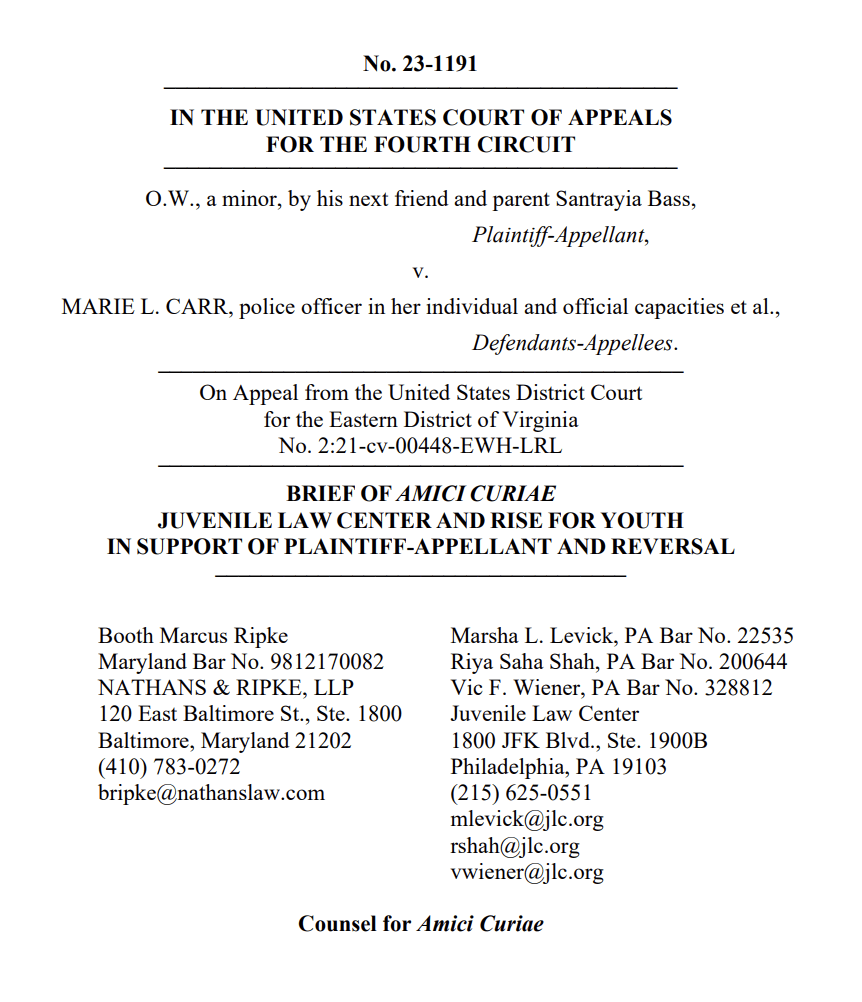
Summary of Argument
Seventy years ago, the United States Supreme Court articulated that “[c]hildren have a very special place in life which law should reflect.” May v. Anderson, 345 U.S. 528, 536 (1953) (Frankfurter, J., concurring). Drawing on historical experience, common sense, and scientific research, the Court has subsequently—and repeatedly—affirmed that children possess developmental traits—impulsivity, difficulty weighing risks and rewards, and vulnerability to outside pressures—that distinguish them from adults. See Roper v. Simmons, 543 U.S. 551, 569-70 (2005); Graham v. Florida, 560 U.S. 48, 68 (2010); Miller v. Alabama, 567 U.S. 460, 471-72 (2012); Montgomery v. Louisiana, 577 U.S. 190, 206-08 (2016); Jones v. Mississippi, 141 S. Ct. 1307, 1316 (2021). Childhood has legal significance, and the Court has accordingly required consideration of the distinctive attributes of youth in a diverse array of constitutional rulings, including in school settings. See J.D.B. v. North Carolina, 564 U.S. 261, 275-76 (2011).
In the instant case, Mr. Baker, Kempsville Middle School vice-principal, acting with the school resource officer (SRO), Officer Carr, compelled O.W. to write a series of statements, the final of which was immediately handed over to Officer Carr and used to prosecute him in juvenile court. Despite a long-standing legal recognition that children are entitled to heightened protections during interrogations by law enforcement, the district court rejected O.W.’s claim that Mr. Baker compelled him to make statements that were then used against him in a juvenile court proceeding in violation of his Fifth Amendment right against self- incrimination. Bass ex rel. O.W. v. Sch. Bd. of the City of Va. Beach, No. 2:21-cv- 448, 2023 WL 1994355, at *11 (E.D. Va. Feb. 14, 2023). Indeed, not only did the school fail to protect O.W.’s constitutional rights, it actively participated in their violation.
Amici write to highlight the implications of the increasing number of law enforcement officers in schools, youths’ unique vulnerabilities in school settings, and how these affect the interrogation analysis under the Fifth Amendment.